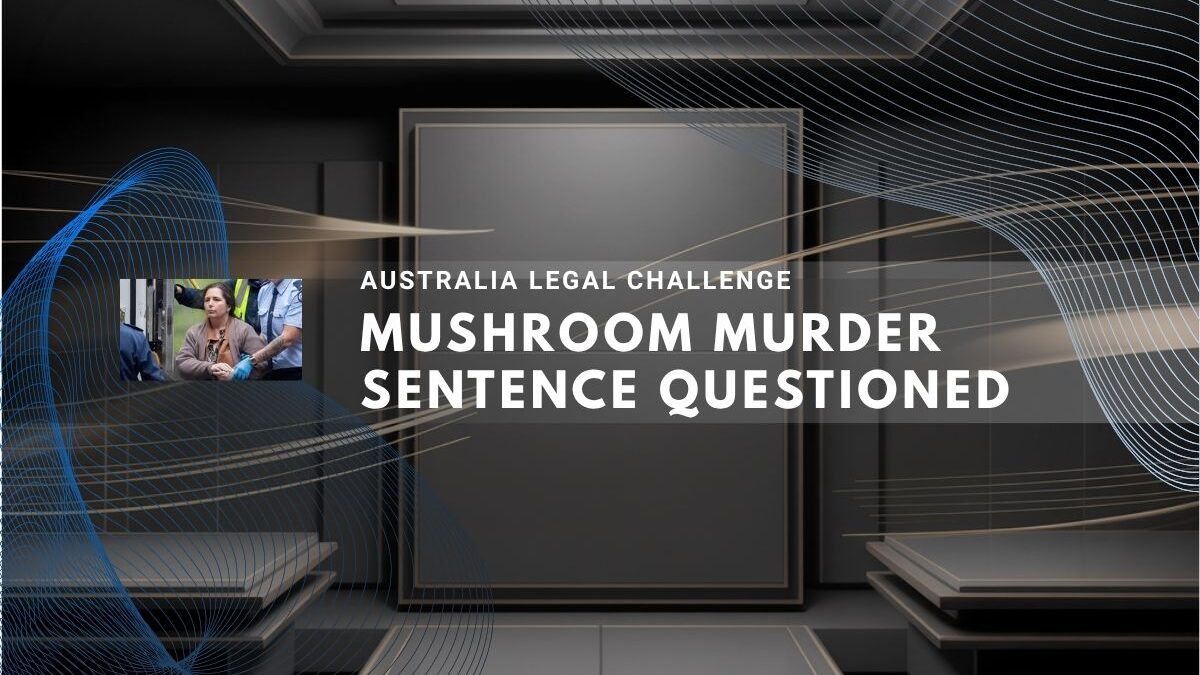Australian prosecutors have filed an appeal challenging the life sentence given to Erin Patterson for murdering three relatives with poisonous mushrooms. The Department of Public Prosecutions argues the 33-year non-parole period is manifestly inadequate given the severity of her crimes. Patterson is also planning to appeal her conviction, creating dual appeals in the high-profile case.[1][2][3]
The Original Conviction and Sentencing
Erin Patterson, 51, was convicted in July 2025 of three counts of murder and one count of attempted murder. She served beef Wellington meals laced with toxic death cap mushrooms to four relatives at her home in Leongatha, Victoria, in July 2023.[4][5]
The Victims
The victims who died were Don Patterson, 70, and Gail Patterson, 70, who were Patterson’s former in-laws. Gail’s sister Heather Wilkinson, 66, also died from the poisoning. Heather’s husband Ian Wilkinson survived after spending weeks hospitalized with serious health complications.[6][7]
Justice Beale’s Sentence
On September 8, 2025, Justice Christopher Beale sentenced Patterson to life imprisonment with a minimum non-parole period of 33 years. This means Patterson could become eligible for parole in 2056 when she reaches age 82. The judge acknowledged the murders ranked among the worst of their kind but allowed parole eligibility partly due to harsh prison conditions Patterson faces.[8][9]
The Prosecution Appeal
On October 6, 2025, Victoria’s Office of Public Prosecutions filed an appeal to the Victorian Court of Appeal. The appeal challenges the sentence as manifestly inadequate.[1][2]
Prosecutors argue Justice Beale made errors in two key areas. First, they contend setting any non-parole period was inappropriate for crimes of this magnitude. Second, they claim the judge incorrectly weighted Patterson’s solitary confinement as a mitigating factor without sufficient evidence she will remain in such conditions long term.[3][10]
Patterson’s Defense Appeal
Patterson’s barrister Richard Edney announced on October 2, 2025 that Patterson intends to appeal her conviction. However, no formal appeal documents have been lodged yet. Patterson does not have an automatic right to appeal and must convince the Victorian Court of Appeal that legal errors occurred warranting a hearing.[11][1]
Throughout the trial, Patterson maintained the poisoning was accidental. The specific grounds for her conviction appeal have not been publicly disclosed.[11]
Current Prison Conditions
Patterson is held at Dame Phyllis Frost Centre, a maximum security women’s prison in western Melbourne. Due to her notoriety and safety risks from other inmates, she spends approximately 22 hours daily in solitary confinement.[9][8]
Daily Life in Custody
Patterson’s isolation includes:
- Minimal human contact throughout each day
- Food delivered through small cell door opening
- Restricted movement within the facility
- Limited interaction with other prisoners
- Heightened security protocols for her protection
What Happens Next
Both appeals will be reviewed by a three-judge panel of the Victorian Court of Appeal. No hearing date has been set yet. The case continues to draw intense global media attention with journalists, podcasters and documentary filmmakers covering developments.[1][2][3]



